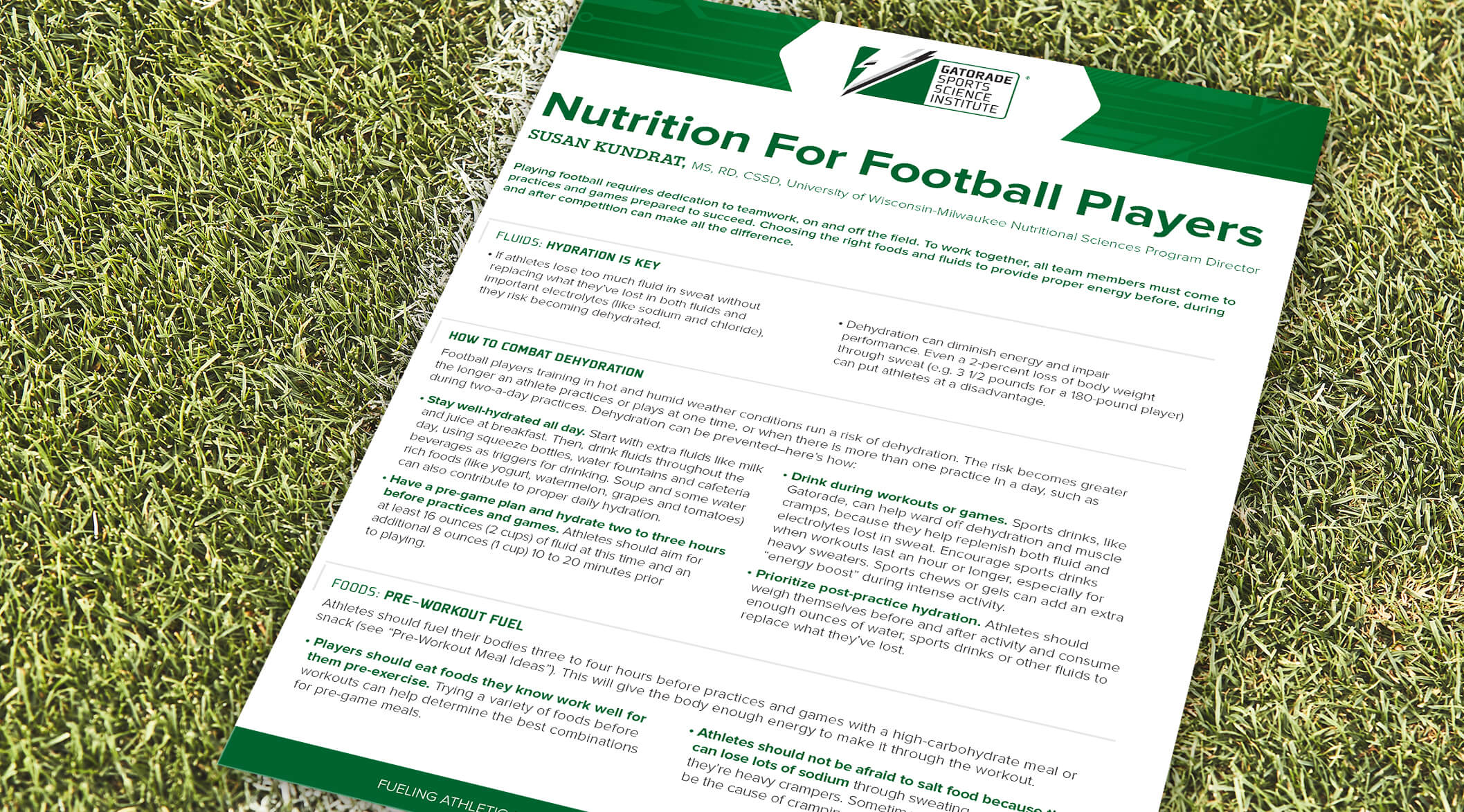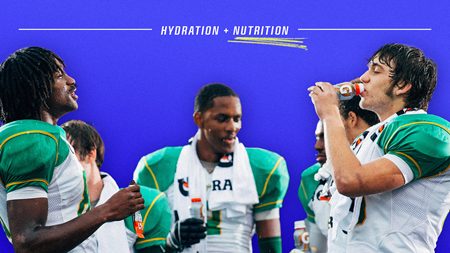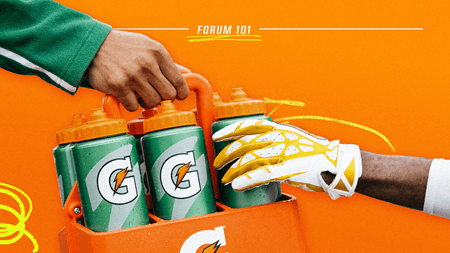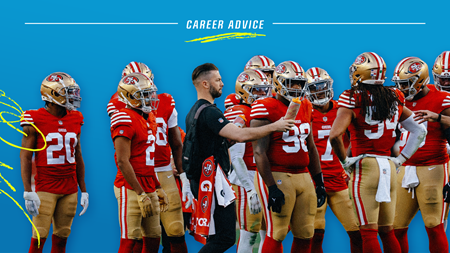Playing football requires dedication to teamwork, on and off the field. To work together, all team members must come to practices and games prepared to succeed. Choosing the right foods and fluids to provide proper energy before, during and after competition can make all the difference.
Fluids: Hydration is Key
If athletes lose too much fluid in sweat without replacing what they’ve lost in both fluids and important electrolytes (like sodium and chloride), they risk becoming dehydrated.
- Dehydration can diminish energy and impair performance. Even a 2-percent loss of body weight through sweat (e.g. 3 1/2 pounds for a 180-pound player) can put athletes at a disadvantage.
How to Combat Dehydration
Football players training in hot and humid weather conditions run a risk of dehydration. The risk becomes greater the longer an athlete practices or plays at one time, or when there is more than one practice in a day, such as during two-a-day practices. Dehydration can be prevented—here’s how:
- Stay well-hydrated all day. Start with extra fluids like milk and juice at breakfast. Then, drink fluids throughout the day, using squeeze bottles, water fountains and cafeteria beverages as triggers for drinking. Soup and some water rich foods (like yogurt, watermelon, grapes and tomatoes) can also contribute to proper daily hydration.
- Have a pre-game plan and hydrate two to three hours before practices and games. Athletes should aim for at least 16 ounces (2 cups) of fluid at this time and an additional 8 ounces (1 cup) 10 to 20 minutes prior to playing.
- Drink during workouts or games. Sports drinks, like Gatorade, can help ward off dehydration and muscle cramps, because they help replenish both fluid and electrolytes lost in sweat. Encourage sports drinks when workouts last an hour or longer, especially for heavy sweaters. Sports chews or gels can add an extra “energy boost” during intense activity.
- Prioritize post-practice hydration. Athletes should weigh themselves before and after activity and consume enough ounces of water, sports drinks or other fluids to replace what they’ve lost.
Foods: Pre-workout Fuel
Athletes should fuel their bodies three to four hours before practices and games with a high-carbohydrate meal or snack (see “Pre-Workout Meal Ideas”). This will give the body enough energy to make it through the workout.
- Players should eat foods they know work well for them pre-exercise. Trying a variety of foods before workouts can help determine the best combinations for pre-game meals.
- Athletes should not be afraid to salt food because they can lose lots of sodium through sweating—especially if they’re heavy crampers. Sometimes, that sodium loss can be the cause of cramping.
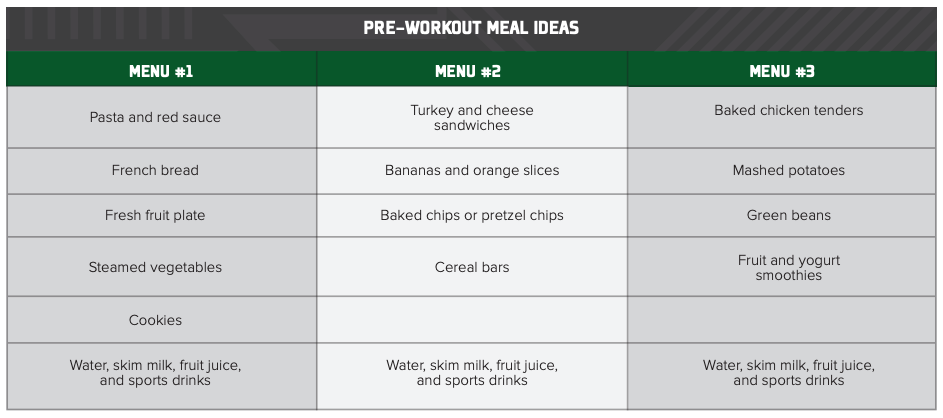
Recovery Foods: Post-workout Fuel
To maximize the body’s ability to refuel muscles after every workout, athletes should consume a post-workout snack as soon as possible after practice or games. This helps restock the muscle energy used in practices quickly.
Tips for recovery:
- Have snacks like trail mix, sports chews and bars, cereal mixed with peanuts and raisins, recovery shakes or peanut butter and crackers within reach after workouts.
- Encourage athletes to eat a meal within one to two hours after workouts to continue muscle energy recovery.
Locker or Backpack Snacks
Many athletes run from school directly to practices with limited time to get energy to working muscles before hitting the field. Some quick locker or backpack snacks include:
- Granola bars, cereal bars and sports bars
- Energy chews
- Trail mix
- Dry cereal and pretzels
- Pressed fruit or fruit rolls
- Juice boxes
There is research that supports that prioritizing nutrition on a daily basis can potentially enhance success for athletes. Make sports nutrition a priority for your teams and you’ll see the difference.
